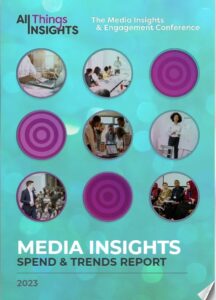Don’t get me wrong, certifications do have their benefits, including often being backed by third parties or government agencies, being small enough to fit nicely on limited packaging real estate, and sometimes being well known by consumers. In the B2B world, certifications are widely leveraged to ensure transparency in complex value chains. Over the past decade, certifications are becoming more commonly used by brands and retailers as “messaging” on consumer products. However, brands can go overboard with certifications, resulting in consumer confusion or numbness to their presence. For example, many common products in Europe are more decorated than a 4-Star General, completely overwhelming consumers. Eastman commonly hears frustrations about “certification overload” in European focus groups.
Used correctly, certifications can add to a sustainable product story, but should never be a replacement for that story. In fact, certifications tend to have little impact on consumer purchase decisions by themselves. Eastman’s consumer research finds that between a fifth and third of U.S. and European consumers say sustainability certifications drive purchases of a number of products. In other words, certifications alone cannot replace good product storytelling and messaging.

Building Consumer Trust
One of the reasons certifications alone cannot drive purchases is that consumer trust in sustainability information is very low across sources. Although brands are viewed about as trustworthy as a Kardashian when it comes to sustainability claims (16% for brands versus 12% for influencers), certifications (27%), third parties (25%), and governments (16%) don’t fare much better across the U.S. and Europe. A certification by itself cannot create instant trust with consumers, brands need to take action to build trust and credibility around sustainability first. Once trust is established, a combination of product storytelling, messaging, and the right certification can become compelling to consumers.

Providing data-backed recommendations on how your company can build trust and credibility with consumers on sustainability will go a long way in helping you as an insight professional get and maintain a seat at “the sustainability table.” Once brand trust is established with your consumer base, insight professionals should research how the right combination of branding, messaging, and certifications can drive consumer preference towards your company’s sustainable offerings. If successful, your company may have an opportunity to build equity, loyalty, and gain price premiums.
Tell a Compelling Story
Next month’s article will debunk the myth that consumers will not pay more for sustainability. Even in today’s uncertain economic environment, brands who tell compelling “performance plus sustainability” stories have an opportunity to improve their margins. However, doing so will require more than a certification and a price increase.
Click here for Justin Coates’ series for All Things Insights, “Exploring 10 Myths About Global Consumers & Sustainability.”
Contributor
-

Justin Coates is Eastman’s Head of Global Market Research & Consumer Insights, responsible for leading business intelligence, customer experience, user experience, foresighting, and consumer insights across Eastman. Before joining Eastman in 2017, Coates spent a decade at Cotton Incorporated managing their global consumer insights research and positioning himself as a thought leader on consumer trends with the world’s largest brands and retailers. He holds a Masters of Economics degree from North Carolina State University and a Bachelors of Arts degree in Political Science from High Point University. Coates lives with his wife and son in Kingsport, Tennessee.
View all posts












































































































